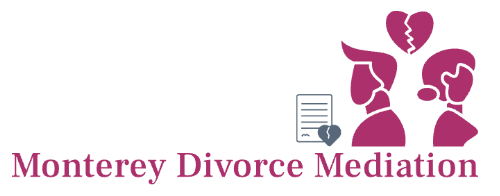How Custody Mediation Helps Parents Save Time and Money in Monterey County
Key Takeaways
- Custody mediation in Monterey helps parents save money by reducing the need for prolonged court battles.
- The process saves time, often resolving disputes in a matter of weeks instead of months or years.
- Parenting plan mediation allows parents to create customized, child-focused schedules.
- Mediation supports better communication and cooperation between parents.
- Agreements reached in mediation are more sustainable because they are designed by parents themselves.
- Children benefit emotionally when parents resolve conflicts outside of court.
Understanding Custody Mediation in Monterey County
Custody mediation in Monterey County is a structured process where parents meet with a neutral mediator to resolve disputes regarding custody and visitation. Instead of a judge in a trial who imposes decisions, a mediator in a mediation guides parents in discussing practical arrangements for their children. This collaborative environment often leads to more positive outcomes, as parents feel empowered to make decisions together.
In Monterey County, courts strongly encourage custody mediation as a way to reduce caseloads and help families. In fact, mediation is required in many custody cases before they can proceed to trial. This requirement reflects the belief that parents are better equipped than judges to make decisions about their children, that is, if they can reach an agreement in a structured setting.
The Role of Parenting Plan Mediation
Parenting plan mediation is central to the process. In these sessions, parents work with the mediator to create a written plan covering daily routines, holidays, school schedules, and extracurricular activities. Parents usually know their children best, so the resulting plan is usually more flexible and realistic than a court order. This helps reduce future conflicts and provides children with a sense of stability.
Why Custody Mediation Saves Time and Money
Financial Advantages of Custody Mediation
One of the main reasons parents choose mediation is financial savings. Court litigation can involve multiple hearings, expert witnesses, and continuous attorney involvement, which all drive up the expenses quickly. When parents opt for litigation, attorney retainers alone can cost thousands of dollars, and the cost of ongoing hearings may add up.
On the other hand, mediation typically involves fewer sessions and lower hourly costs. A per-session billing is typical, and most times, only a few meetings are required to reach a resolution. Parents who choose parenting plan mediation often find that they can resolve disputes at a fraction of the price. This means parents can redirect their financial resources toward their children's education, healthcare, or extracurricular activities instead of court expenses.
Time Savings Through Mediation
Court cases can drag on for months or years, especially if the custody dispute is contested. This situation creates uncertainty and stress for both parents and children. By contrast, mediation sessions are designed to move quickly.
In Monterey, many families resolve custody arrangements in just a few sessions, allowing them to move forward with their lives sooner.
Mediation vs. Litigation: A Clear Comparison
The differences between custody mediation and litigation highlight why more families are turning to mediation in Monterey County. Below is a comparison of the two approaches.
| Aspect | Custody Mediation | Court Litigation |
|---|---|---|
| Cost | Lower, with fewer attorney hours | High, often reaching thousands in fees |
| Timeframe | Weeks to months | Months to years |
| Decision-maker | Parents with mediator guidance | Judge |
| Flexibility | Custom parenting plans | Court-imposed orders |
| Stress Level | Collaborative and calmer | Adversarial and stressful |
| Focus | Child-centered solutions | Legal outcomes, not always child-focused |
The Custody Mediation Process: What to Expect
Step-by-Step Guide to Custody Mediation
Parents who are new to custody mediation in Monterey may feel unsure about what to expect. The custody mediation process generally follows these steps:
- Initial Meeting: The process begins when parents agree to participate or are referred by the court. Parents attend an orientation where the mediator explains the rules and goals.
- Sharing Concerns: Parents share their concerns and outline their priorities for the parenting plan during facilitated discussions.
- Collaborative Problem-Solving: The mediator helps parents compromise on visitation schedules, holidays, and decision-making authority.
- Agreement Documentation: After reaching an agreement, the parenting plan is written and sent to the court for approval. This ensures both parents have a clear and enforceable plan.
Preparing for Successful Mediation
Preparation is important for successful mediation. Parents should bring proposed schedules, notes on their child's needs, and a willingness to compromise. With the parents coming prepared for these sessions, they can have more productive discussions and, often, fewer sessions required. Parents who focus on their child's best interests tend to reach agreements faster and with less conflict.
Parents can improve their chances of success by focusing on practical solutions rather than past conflicts. Strong communication is essential: to focus on solutions rather than accusations, parents should practice active listening and use “I” statements.
Common Challenges and How Mediators Handle Them
Not all mediation sessions go smoothly: parents may disagree on holidays, schooling, or medical decisions. However, mediators are trained to manage conflict and guide conversations toward resolution. Although parents may not agree on every detail, mediation often narrows down disputes, which reduces what must be decided in court.
Some parents assume that mediation means giving up their rights or that the mediator will favor one side. In reality, mediators are neutral professionals whose role is to facilitate discussions, not to impose decisions.
Mediation is designed to help parents resolve disagreements constructively, even when tensions are high.
Benefits Beyond Cost and Time Savings
How Mediation Benefits Children
Children are often the most affected by custody disputes. Exposure to high conflict between parents can cause stress, anxiety, and long-term emotional issues. Mediation reduces these risks by promoting cooperation and respect. When children see their parents working together, they feel more secure and supported during the transition.
Beyond its legal and financial benefits, mediation has significant emotional advantages for the entire family. Studies consistently show that children do better emotionally and academically when their parents can co-parent effectively. Mediation helps set the stage for a cooperative relationship that can last long after the custody arrangements are finalized.
Promoting Long-Term Cooperation
In litigation, parents are often pitted against each other. Mediation is based on their cooperation. By encouraging open communication, the process reduces hostility and creates space for productive problem-solving. This cooperative environment supports parents and demonstrates to children that conflicts can be resolved with respect.
Parents who resolve disputes through mediation often improve their communication skills, which help them in future co-parenting situations. The benefits include saving time and money; they also help create healthier family dynamics, which support children's growth and well-being.
Future Flexibility of Mediated Plans
Life circumstances change, such as parents planning to relocate, jobs shifting, or children's needs evolving as they grow older. Mediated parenting plans are often easier to adjust than court-ordered arrangements because they are built on communication and compromise. Parents who develop strong cooperative skills during mediation are better prepared to review and revise their agreements. This way, when changes arise, their family does ot have to return to court repeatedly.
Successful Scenarios of Monterey Families
Consider a Monterey family where both parents worked rotating shifts. Initially, they struggled to divide custody fairly. Then, they developed a two-week schedule through mediation. This schedule respected each parent's work commitments and helped the children keep a consistent routine. This agreement, which was crafted in just three sessions, prevented what could have been months of contested hearings.
Another case involved parents who disagreed about where their child would spend Christmas. In court, a judge might have imposed a rigid alternating schedule. In mediation, the parents agreed to take turns on Christmas Eve and Christmas Day each year. This way, both families can celebrate their important traditions. These creative solutions are rarely possible in litigation, where judges must follow strict guidelines.
In other examples, two parents in Monterey who struggled to agree on holiday schedules used mediation to create a rotating plan that allowed both sides to celebrate with their children. Another family crafted a school-year plan that considered both parents' work schedules. These solutions would have been harder to achieve in court, where decisions are less personalized.
Frequently Asked Questions
What is custody mediation?
Custody mediation is a process where parents going through a divorce meet with a neutral mediator to discuss custody and visitation arrangements. The goal is to create practical agreements without requiring lengthy court proceedings.
How does parenting plan mediation work?
Parenting plan mediation allows parents to design detailed schedules for their children. This can include school routines, holidays, transportation, and decision-making responsibilities. Because the plan is designed by the parents, it is often easier to follow and maintain.
Is a mediated parenting plan legally binding?
Yes. Once both parents agree on a parenting plan, it can be submitted to the court. After approval, it becomes a legally binding order just like a judge's decision.
Do I need a lawyer during mediation?
Lawyers are not required for mediation, but some parents choose to consult one for advice. Many families successfully complete mediation without hiring full legal representation.
What happens if mediation does not work?
If parents cannot reach an agreement, the case may move forward in court where a judge will make the final decision. Even in those situations, mediation often helps narrow down the issues in dispute.
Final Thoughts
Custody mediation gives parents in Monterey County the chance to resolve custody matters in a practical, cooperative, and cost-effective manner. By reducing the need for extended litigation, parents save time and money while also minimizing stress for themselves and their children.
Parenting plan mediation empowers families to design schedules and solutions that truly fit their needs. For many parents, mediation provides not only financial relief but also a stronger foundation for long-term co-parenting success.
Deciding on what's best for your children after your separation? We can help you.
Reference:
https://www.ncjfcj.org/bench-cards/a-judicial-guide-to-child-safety-in-custody-cases/









